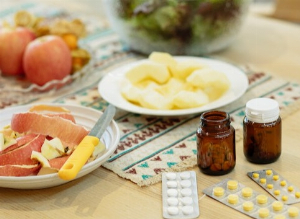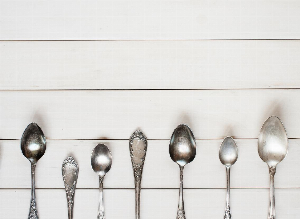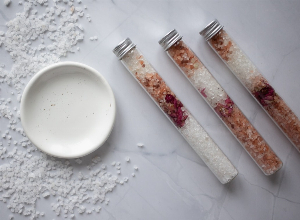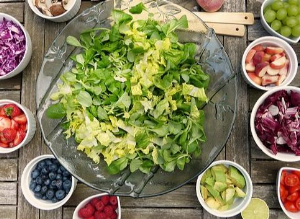7 dangerous food-drug interactions
Published Dec 18, 2022 • By Candice Salomé
Certain types of food, by interacting with certain drugs, can have an impact on their effectiveness or increase their side effects. Indeed, any medicine, taken orally, must be absorbed in the best possible conditions, as the active substance must be able to pass into the bloodstream and act on the target organ.
What foods can interfere with medication? How should you adjust your diet? How can you ensure that your treatment is effective?
We explain it all in our article!

Some commonly consumed foods, including those that are considered to be healthy, can degrade the drug and even make it toxic.
Some of these foods are:
Grapefruit
Consumption of grapefruit, but also other citrus fruits such as pomelo, lime or Seville orange, at the same time with certain drugs is strongly discouraged, because the substances contained in these fruits increase the absorption of certain molecules, thus leading to an overdose.
In other cases, grapefruit can block the absorption of a drug, thus reducing its effectiveness.
The drugs in question are:
- Statins (for cholesterol): simvastatin (whose effect can be multiplied by 15), atorvastatin, lovastatin;
- Nifedipine (for high blood pressure);
- Amiodarone (for heart rhythm disorders);
- Corticoids (budenoside);
- Fexofenadine (antihistamine);
- Ciclosporin (immunosuppressant).
The effect of the above-mentioned citrus fruits persists for up to three days, so they should not be consumed for the duration of the treatment.
Dairy products
Dairy products contain calcium which can bind to certain drugs, including some antibiotics and osteoporosis treatments, preventing them from being properly absorbed. As a result, the treatment may not be fully effective.
To avoid this interaction, it is recommended to take these treatments at least 30-60 minutes before consuming calcium-rich foods such as dairy products, or at least 2 hours after.
Foods rich in vitamin K
Foods rich in vitamin K such as broccoli, cabbage, spinach, avocado, lettuce, etc. do not go well with oral anticoagulant treatments.
In fact, vitamin K (the clotting vitamin) which these vegetables contain, reduces the effectiveness of anticoagulant drugs to the point of causing blood clots.
You should not eat more than one portion of these vegetables per day if you are taking blood-thinning medication. In patients with heart disease, this combination could result in a heart attack or stroke.
Foods rich in potassium
ACE inhibitors, drugs for high blood pressure or heart failure, can cause an increase in potassium levels in the blood. Too much potassium can provoke heart problems such as palpitations or irregular heartbeat.
Other drugs, such as diuretics, prescribed to reduce fluid retention and treat high blood pressure, can lead to a decrease of potassium level in the blood.
A large amount of potassium is found in foods such as bananas, green leafy vegetables and oranges. It is therefore important to follow your doctor's recommendations regarding these foods. Depending on the situation, your doctor may ask you to reduce, maintain or increase your intake.
In addition, you should be careful about consuming seasonings that are sold to replace salt, as they too are very high in potassium.
Licorice
The licorice plant, but also dietary supplements containing licorice extract, are rich in glycyrrhizic acid, which can cause irregular heart rhythms.
Licorice may also reduce the effectiveness of most blood pressure medications, intensify the side effects of blood thinners, raise blood pressure, or lower potassium levels when taken by a person on oral contraceptives.
Beverages rich in caffeine
When taking certain fluoroquinolone antibiotics (enoxacin, ciprofloxacin), caffeine should be avoided. This family of antibiotics slows down the metabolism of caffeine, increasing its concentration and its effects on the body. There is a risk of palpitations, sweating or tremors.
Consumption of caffeinated drinks (coffee, tea, soda) should be avoided when taking paracetamol. The caffeine contained in these drinks increases the absorption of the drug and the risk of overdosing becomes higher.
In addition, caffeine does not go well with theophylline-containing asthma medications (dilatran, tedralan) and can cause sweating and palpitations.
It is therefore recommended that you reduce or even completely eliminate your caffeine intake during treatment.
Finally, consuming black tea and iron-containing foods at the same time inhibits the absorption of non-heme iron - found in plants such as cereals, fruit, vegetables and eggs - by about 60-70%. When tea is consumed between meals, the absorption of non-heme iron will decrease by about 20%. This also applies to iron supplementation.
Alcohol
Alcohol should be avoided when taking sedative drugs (sleeping pills, muscle relaxants, codeine, tramadol, morphine and its derivatives), first generation antihistamines, neuroleptics and anti-epileptics, as it increases drowsiness and decreases alertness.
Alcohol may also increase the risk of digestive side effects when taking aspirin or non-steroidal anti-inflammatory drugs (NSAIDs).
Some antibiotics cause more side effects when taken with alcohol.
In addition, both alcohol and paracetamol are metabolized in the liver. Taking paracetamol during or after heavy alcohol consumption may reduce its effectiveness. The mixture can also cause liver damage and lead to drug-induced hepatitis, or drug-induced liver damage.
Therefore, the effect of certain foods on your treatment should not be underestimated. When your doctor or pharmacist gives you specific instructions about food, they must be strictly adhered to so that your treatment is fully effective and does not cause avoidable side effects.
In case of doubt, all the necessary information can be found in the package leaflet.
Give it a like and share your thoughts and questions with the community in the comments below!
Take care!
Sources :
Médicaments et alcool, Vidal
Liste des interférences des aliments et des médicaments, CH de Niort
5 types d’aliments qui peuvent interagir avec vos médicaments, Proximed
5 aliments qui peuvent interférer avec les médicaments, Femme Actuelle
Médicaments, aliments : les interactions à connaître, Santé Magazine
5 aliments qui interfèrent avec les médicaments, Futura Science
Les effets du thé sur l’absorption du fer alimentaire, EM-Consulte
2 comments
You will also like

Spoon theory: What is it and how can it help people living with chronic illness?
Apr 13, 2022 • 7 comments

 Facebook
Facebook Twitter
Twitter



